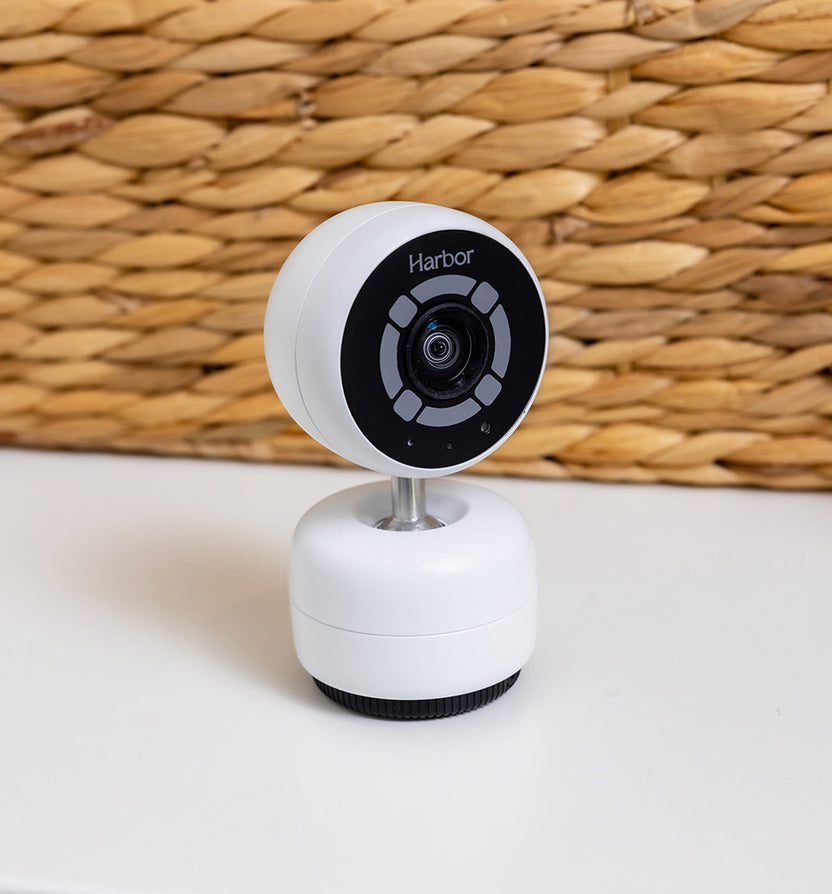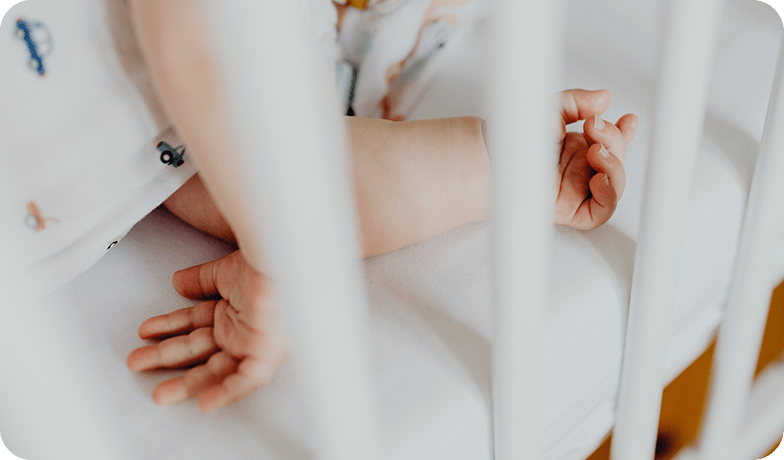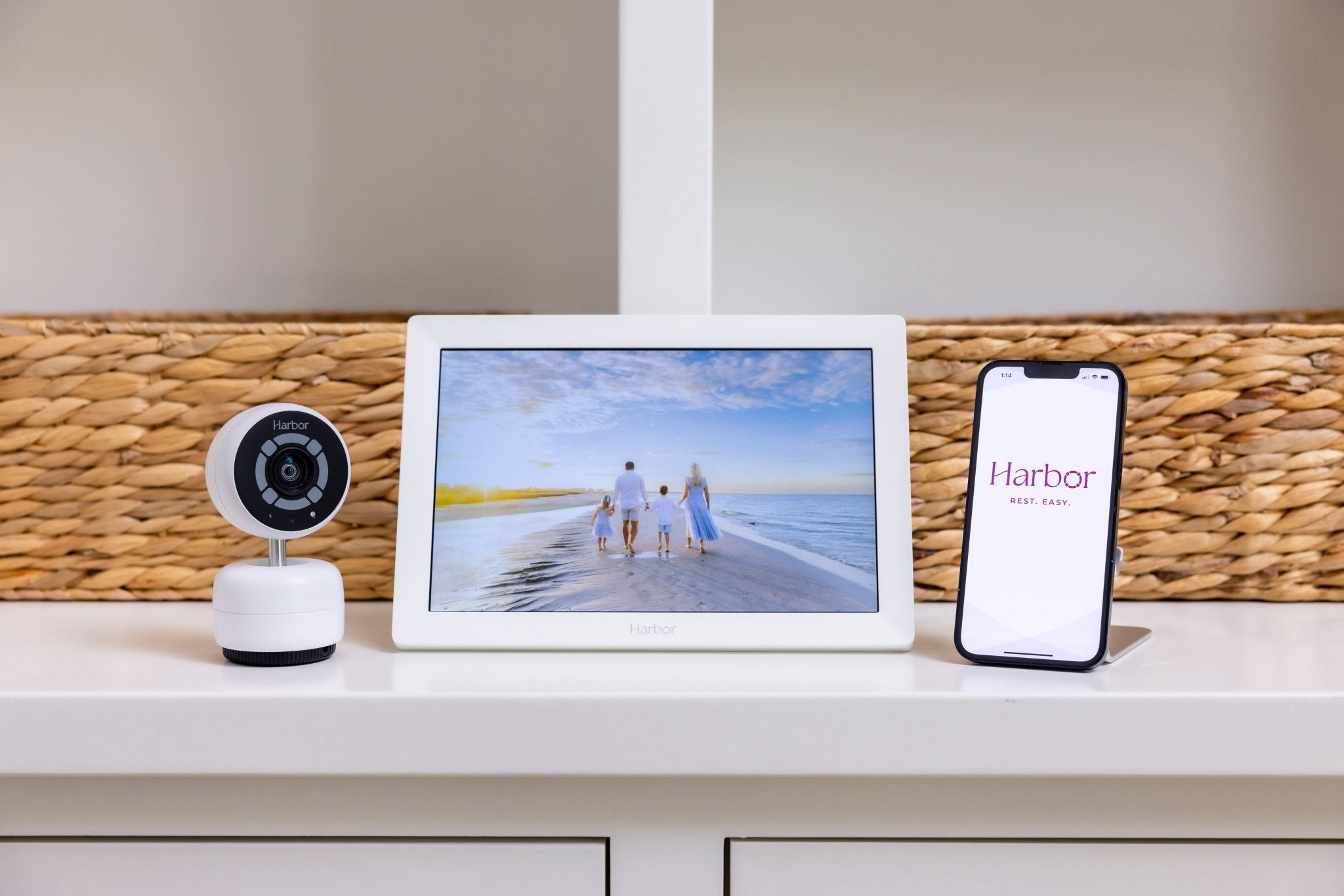
Ah, the 4–6 AM wake-up call. Parents know it all too well: the early morning hours when your little one decides it’s time to start the day, even if you’re still deep in dreamland. These early wake-ups are common among babies and toddlers. While they can be challenging, understanding why they happen can help you manage them more effectively.
Let’s dig into the science behind early risings, how to handle them, and how tracking sleep patterns with a baby monitor can help you get a bit more shut-eye.
Why Do Early Morning Wake-Ups Happen?
Before we dive into tips for managing early wake-ups, it helps to understand why they happen in the first place. There’s a lot of science behind the early-bird tendencies of little ones!
1. Circadian Rhythm
Babies and toddlers are still developing their circadian rhythm, or the internal clock that tells us when to sleep and wake. Because these rhythms are heavily influenced by light, kiddos will be most vulnerable to early wake-ups during the summer months, when sunlight streams into their room earlier.
2. Sleep Cycles
Babies’ sleep cycles are shorter and lighter than adults'. They start sleeping in deeper cycles around midnight and by the early morning, they’re in lighter REM sleep, which makes them more prone to waking up. Add in a bit of hunger, a diaper that’s slightly too wet, or a touch of discomfort, and that’s all it takes to cut their sleep short.
3. Daytime Sleep
Surprisingly, too much (or too little) sleep during the day can contribute to early morning wake-ups. Babies need a balanced amount of sleep during the day and night, but if they get a lot of sleep during naps, it can reduce their “sleep pressure” at night. Sleep pressure is the body’s natural drive for sleep. It builds up throughout the day and if it’s too low by bedtime due to long or frequent naps, baby’s body may reach a point where it’s simply done sleeping by the early morning hours. In these cases, adjusting nap lengths and timing can help redistribute sleep more evenly.
4. Developmental Stages and Milestones
Physical milestones like crawling, standing, and walking are incredibly exciting for little ones, and they often get so excited about practicing these new skills that it interrupts their sleep. Similarly, cognitive developments, like an increased awareness of their surroundings or a budding curiosity about what’s happening around them, can cause sleep disruptions.
5. Sleep Environment and Temperature
Babies are sensitive to their surroundings, and something as simple as the temperature or level of darkness in their room can impact their sleep. Early in the morning, when their body temperature is naturally lower, even a slight chill can be uncomfortable enough to wake them.
Tips for Managing Early Morning Wake-Ups
Now that we know why early morning wake-ups happen, let’s talk about how to manage them. Here are some practical tips that can help reduce early morning disturbances and help your child sleep a bit longer.
Create a Consistent Sleep Routine
A consistent bedtime routine reinforces your little one’s circadian rhythm, helping them naturally wind down and prepare for a restful night. Routines provide structure and can signal that it’s time to sleep, making early wake-ups less likely.
For babies, incorporate calming activities like a warm bath, a gentle massage, reading a short story, or some soft lullabies before bed. Try to keep these activities the same each night, creating a predictable pattern that tells your baby it’s time to sleep.
For toddlers, you’ll want to develop a routine that also rewards their growing independence. They’ll often want a say in their bedtime rituals. Keep the structure consistent with steps like brushing teeth, putting on pajamas, reading a favorite book, or sharing a short “chat” about the day. Try using a toddler-friendly sleep clock that changes color to indicate when it’s time for bed and when it’s okay to wake up. This can reinforce a sense of routine and expected wake times.
With both babies and toddlers, keeping the environment calm and predictable will reduce the likelihood of early morning wake-ups and set a strong foundation for restful, consistent sleep. Here are some things to look for:
1. Optimize the Sleep Environment
Creating a cozy, dark, and quiet sleep environment can do wonders for early risers. Use blackout curtains to keep sunlight from disrupting their sleep and use a white noise machine to drown out any sounds. Ensure that the room temperature is comfortable, around 68–72°F, which has been shown to promote better sleep.
2. Adjust Bedtime Strategically
It may seem logical to put your baby to bed later so they’ll sleep longer, but an overtired baby can be more prone to early wake-ups. Instead, ensure they have enough daytime naps and try moving bedtime slightly earlier if they’ve been waking up too early. Experimenting with small adjustments can help you find the optimal bedtime for a longer, more restful night.
3. Using a Baby Monitor to Track Sleep Patterns
Using a baby monitor like Harbor to track baby’s sleep patterns gives you a better understanding of their natural rhythms. Many modern monitors provide information about movement and sleep cycles, which can help you identify any patterns in baby’s wake-ups. For instance, if they consistently wake up at 5 AM, you can experiment with changes to their bedtime or environment and monitor the results.
4. Manage Hunger Early in the Morning
For babies who are still feeding at night, hunger can play a role in those early morning wake-ups. Ensuring that they have a full feeding before bedtime or during a scheduled night feed can help curb early morning hunger. Some parents find that a “dream feed” around 11 PM reduces wake-ups between 4 and 6 AM. A 4–5 AM snooze feed can also help babies get a little bit more sleep!
5. Avoid Responding Immediately
If baby wakes up early but isn’t upset, wait a few minutes to see if they fall back asleep. Often, babies will stir and make sounds but might settle themselves back to sleep with a little time. Responding too quickly can reinforce early waking as a habit.
6. Gradually Delay the Start of the Day
If baby is waking up at 5:30 AM and you’d prefer they sleep until 6 or later, try gradually delaying the start of the day by 15 minutes every couple of days. Keep the lights dim, use a soothing voice, and avoid too much stimulation until your target wake time. This communicates that it’s still time to rest.
How Baby Monitors Can Support Parents in Managing Early Wake-Ups
Modern baby monitors like Harbor are incredibly helpful tools, especially when it comes to understanding and managing early morning wake-ups. Harbor comes with features that go beyond video and audio, allowing you to track sleep patterns and even room temperature. Here’s how a monitor can be especially beneficial for early risers:
Identify Patterns
By reviewing sleep data, you can spot trends in baby’s early wake-ups, like if they always wake at the same time or if certain environmental factors are influencing their sleep.
Environmental Tracking
Monitors with temperature sensors can alert you if the room is too cold or too hot, helping you maintain the ideal environment that supports longer sleep.
Encourage Self-Soothing
With video monitoring, you can observe whether baby is waking up because they’re uncomfortable or simply stirring. Sometimes, all they need is some time to self-soothe back to sleep. A monitor can help you distinguish between moments when they need assistance and when they can manage on their own.
The Bottom Line: Embracing Baby Steps
While early wake-ups can be challenging, they’re also temporary. With a little trial and error, a solid understanding of your baby’s sleep needs, and the help of a good baby monitor, you can overcome this hurdle. Remember, sleep isn’t always linear and consistency is key! Small adjustments can make a big difference over time. Before you know it, your little one will be sleeping soundly through those early morning hours.
At the end of the day, early wake-ups are just one part of the ever-evolving sleep journey. Stay patient, stay flexible, and don’t hesitate to use the resources available to you, like a Harbor baby monitor, to make the journey a bit easier.
Written by: Samantha Rosenberg, Certified Sleep Consultant at Slumber Squad
About the Author:
Sam Rosenberg is a certified sleep consultant, and here to help your family get the sleep you need. With extensive experience working with neurodivergent children and children with medical concerns, plus additional certifications, Sam provides the best possible care for growing families. Sam is a proud member of the IACSC (International Association of Child Sleep Consultants) and a mom of two. She brings both professional expertise and personal understanding to her work at Slumber Squad. Sam's firsthand experience as a parent fuels her passion for helping families navigate the challenges of sleep, ensuring that every child and parent receives the support they need to thrive.
Visit www.slumbersquadsleep.com to learn more!




